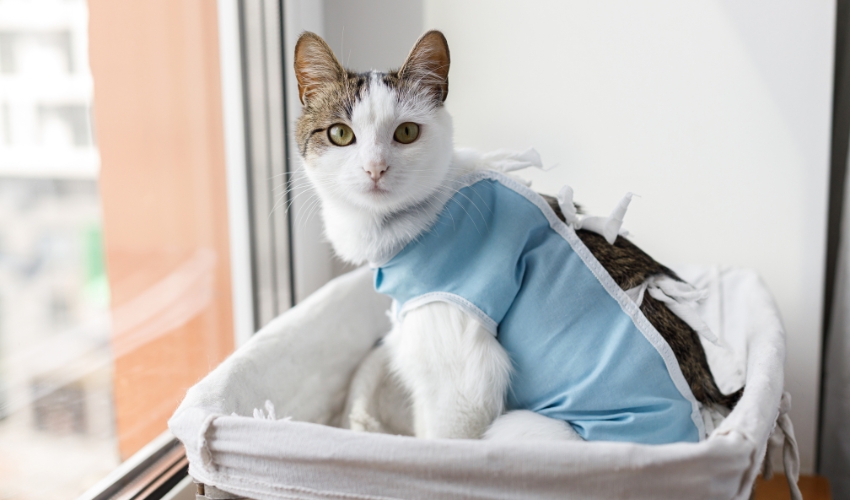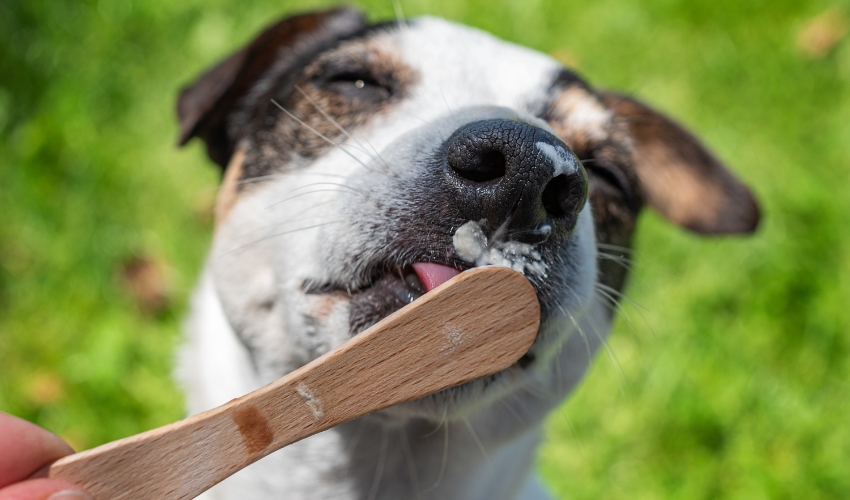Cats can get into their pet owner’s snack stash and eat their food; some human treats are safe, but others can cause devastating effects on their health.
Grapes are an unhealthy snack for felines, so owners need to secure this fruit. This article will explain grape toxicity in cats and give tips on preventing them from finding your fruit basket.
Why Shouldn’t Cats Eat Grapes?
Several owners wonder, “Can cats eat grapes?” These felines need protein in their diet since they are obligate carnivores, so fruit is an unnecessary addition to their menu.
Grapes can also cause adverse health effects due to these factors:
- Grapes have tannins that cats can’t metabolize.
- The fruit’s skin might have pesticides or toxins.
- Some chemicals in grapes can cause kidney damage in cats.
Cats who consume grapes will have a kidney injury that could develop into renal failure. Additional gastrointestinal issues may also form after cats eat grapes.
Felines don’t have sweet taste receptors, so grapes are a pointless snack for these pets as they can’t enjoy the flavor. This bite-sized fruit is also a choking hazard for cats, especially when they try to gobble them.
Obvious Signs of Grape Toxicity In Cats
Some sneaky felines successfully steal grapes off the table. Once the owner notices this, they must monitor their pet for signs of grape toxicity in cats. Here are some symptoms cats may show after they eat grapes:
1. Vomiting
Researchers believe pets can’t digest the tannins in grapes, so the stomach irritation will cause vomiting. The cats may feel weak after losing several electrolytes and nutrients.
2. Stomach Pain
Indigestion can cause stomach discomfort in cats making them lethargic and inactive.
3. Diarrhea
Similar to vomiting, cats expel improperly digested food through loose feces. Owners must ensure their pets replenish the water lost from diarrhea.
4. Decreased appetite
Cats with irritated stomachs won’t want to eat any food, which may increase their chances of getting sick.
5. Dehydration
Cats lose water from vomiting and diarrhea, so they become dehydrated. Owners may notice their pets drinking more water than usual, so they must always ensure a clean water bowl is available.
6. Lethargy
Cats don’t have energy when they develop stomach problems; their symptoms might quickly deteriorate if owners don’t address the grape toxicity problem.
If a cat eats one small grape piece, there’s no reason for concern. However, if owners catch their pets eating several grapes, they must bring them to the veterinarian for detoxing.
Leaving these feline’s symptoms untreated for 24 can increase their renal and kidney failure risk. After three days, the kidneys will stop producing urine, and the pet’s survival chance will be meager.
Can Cats Eat Raisins?
Several pet owners know that grapes are dangerous for cats, but do they know raisins are also deadly? These dried fruits contain the same components as grapes which are also hazardous for cats.
Raisins have tartaric acid that can cause gastrointestinal issues in pets. They also have a higher sugar content than grapes, which is worse for your cat’s health.
If owners catch their pets eating two or more raisins, they must bring them to the veterinarian. Raisins in cookies and bread are also dangerous for cats, so owners must secure these pastries well.
How Veterinarians Treat Grape Toxicity In Cats
Owners must bring their pets to the veterinarian once they catch them eating several grapes or raisins. Here are the procedures the medical workers will follow:
1. Gut decontamination
If owners catch their pets in the early ingestion stage, veterinarians will induce vomiting using apomorphine to remove the fruit from the cat’s gastrointestinal tract.
2. Charcoal treatment
After inducing vomiting, the medical workers will give the cat an oral charcoal medication to trap and release any remaining contaminants. Veterinarians specifically prescribe these charcoal pills, and owners can’t purchase them over the counter.
3. Blood testing
The animal hospital must perform blood work to determine the condition of the cat’s kidneys at that time.
4. Hospitalization
For severe cases, the veterinary clinic may recommend hospitalization for the pet. Cats will receive a 48-hour IV drip to rehydrate the feline and assist with urine production.
The animal hospital will continuously perform blood work on the cats to monitor their kidneys. After 2 or 3 days without deterioration, your pet can go home!
How To Prevent Grape Toxicity In Cats

Some owners give their pets occasional vegetables and fruit to help with cat constipation. However, owners must research these foods’ impact on their felines before they add them to their diet.
Owners should never give their cats grapes as these can lead to several health issues. Here are some tips to avoid feisty felines from getting in the fruit basket.
1. Store grapes properly
It would be helpful to keep these fruits in the fridge or a cat-proof cabinet; don’t leave them in areas your pets have access to.
2. Keep groceries right away
Owners shouldn’t leave their groceries out for a long time. Cats will want to investigate the bag’s contents.
3. Don’t give cats table scraps
Some people don’t realize the food they eat has grapes or raisins; that’s why you shouldn’t give your pets the leftover scraps from dinner.
Owners must be proactive in hiding grapes from their cats. These tips will help prevent accidents that could have a horrible effect on your pet’s health.
Conclusion
Some owners want to give their cats fruit for various reasons, but people should never give them grapes as these negatively affect their health.
People must secure these fruits where their cats can’t reach them. If your pet accidentally gets into the fruit basket, you must check for signs of grape toxicity in cats and bring them to the veterinarian.
Pet owners must act quickly, as leaving grape poisoning unattended can lead to kidney problems and renal failure. These severe illnesses are difficult to cure and may even cause death.
Do you want to learn more about how to spot food toxicity in pets? Visit Doobert and volunteer to adopt to help spread awareness about pet health!











